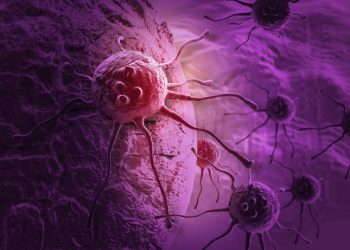Although men are more likely to develop colon cancer, females can also have the disease. Sometimes, a woman’s symptoms mimic those of gynecological problems and can be misdiagnosed.
Women should be aware of early signs and report any persistent change to their doctor. Symptoms of colon cancer include abdominal pain, blood in the stool and a change in bowel habits.
Abdominal Pain
Abdominal pain is an unpleasant feeling that can have many causes. Some serious ones include appendicitis, gallstones, infections and stomach viruses. Others are more benign, such as irritable bowel syndrome or hemorrhoids. But it’s important to tell your doctor about abdominal pain that lasts for more than a few days because it could be a sign of colon cancer.
Your doctor will begin by evaluating the type of abdominal pain you’re having and its location. The abdomen is separated into three different areas by organs: your upper abdomen with the liver, gallbladder and bile duct; your lower abdomen with your stomach and first sections of the small and large intestines; and your pelvis with the right and left kidneys and ureters. Pain in the upper abdomen is most often related to gastrointestinal diseases, while pain in the lower abdomen may be a sign of problems with your ureters, ovaries or uterus.
Women with abdominal pain should tell their doctor if it’s a new symptom and how long it’s been happening. Describe the sensations you’re having and how they affect your daily life. Your physician may also ask you to describe your family history of colorectal cancer and any past surgeries and illnesses that you’ve had.
In the early stages, colorectal cancer doesn’t cause symptoms. When it does develop, the most common symptom is changes in your bowel habits. You might experience a decrease in the frequency or number of bowel movements or you might notice blood in your stool. You might also have cramping and bloating that makes it hard for you to pass stool or have constipation.
Other signs of colon cancer in the lower abdomen are a rectal bleeding or a sudden weight loss. If your doctor suspects that you have colon cancer, he or she will want to perform a physical examination and may order blood tests to look for tumor markers, which are proteins in the body that can indicate the presence of cancerous cells. The blood tests will check your red and white blood cell counts as well as your liver function.
Blood in the Stools
Bleeding in your stool is one of the early symptoms of colon cancer. It can come from many different causes, and your doctor will need to know the extent of the problem to determine a treatment plan. The color of the blood in your stool can help your doctor figure out where the bleeding is coming from. Dark red blood indicates that the bleeding is higher up in your colon or rectum, while bright red blood means it is coming from lower down.
If the amount of blood is small, it can be easily mistaken for normal bowel movements or a medical condition such as hemorrhoids. Moderate or severe rectal bleeding, on the other hand, can deplete your body’s blood supply and cause weakness, fainting and low blood pressure.
Blood in your stool can also be a sign of colon polyps that may eventually develop into cancer. It can also indicate that the cancer has spread to nearby lymph nodes.
All cells in your colon and rectum are constantly growing, dividing and dying. This process keeps your colon healthy and functioning as it should, but if cancerous cells form in the lining of your colon, they can keep growing even after they are supposed to die. This can lead to bleeding during bowel movements, and it can also cause other changes in your bowel habits, such as diarrhea or constipation.
Changes in the consistency of your poop can also be a sign of colon cancer, especially if you’re experiencing pain or discomfort during these changes. Loose stools can occur if the tumor causes a bowel obstruction, while hard, narrow stools may indicate that the cancer is advanced.
Sometimes, your doctor will not see any visible blood in your stool, but will still check for it with a colonoscopy or other cancer screening tests. This is called occult blood in stool, and your doctor will check for it by analyzing your sample under a microscope.
Other symptoms that can accompany bleeding in your stool include nausea, vomiting and tiredness. If you have these symptoms, contact your doctor immediately. The sooner cancer is diagnosed, the more effective treatments can be.
Changes in Bowel Habits
The large intestine (colon) and rectum (the final few inches of the colon that extends into the anus) are where waste from your body travels to exit your body. Sometimes cancer grows in the lining of your colon or rectum, and when it does, it can cause changes in how you poop.
If you notice a change in your stool, such as more frequent diarrhea or constipation, it’s important to talk to your doctor right away. Your doctor may recommend blood tests, a stool sample or other diagnostic tests to help determine the cause of the change.
Changes in bowel habits can be caused by conditions such as hemorrhoids, diverticulitis and a gluten intolerance (celiac disease). However, they can also be a sign of colon cancer. In addition, a stool sample can reveal the presence of tumors and the stage of the cancer.
Hemorrhoids are a common cause of bloody stools, but you should never ignore any unusual or persistent symptoms. If you have a severe and persistent abdominal pain, you should contact your physician, even if the symptoms are not related to your bowels.
A doctor can diagnose changes in bowel habits by performing a physical exam and gathering your medical history. They will ask about the frequency, consistency and color of your stool and how much control you have over when you move your bowels (incontinence).
Your doctor may suggest a sigmoidoscopy or colonoscopy. These procedures involve looking at the inside lining of your colon, where they can see polyps, pouches, areas of bleeding and other abnormalities.
Colon cancer occurs when cells in your colon and rectum keep growing and dividing when they should die. This can lead to a tumor that affects your bowel function and causes symptom such as blood in your stool, diarrhea or rectal pain. The cancer can also spread to other organs, lymph nodes and abdominal tissue. If you have cancer that has spread, your treatment plan may include radiation therapy and medicines such as chemotherapy or targeted therapy. During radiation therapy, doctors target the area of your colon that has been affected by cancerous cells with high doses of radiation.
Changes in Weight
A common early symptom of colon cancer in women is sudden unexplained weight loss. Often, this is accompanied by blood in the stool or changes to your bowel habits like diarrhea or constipation. It’s important to be aware of these symptoms so that you can seek medical care if needed.
Changes in your bowel movements can also be caused by other things, such as food poisoning, but if the symptoms persist for more than a few days, it’s important to visit your doctor. This is especially true if you have other risk factors for colorectal cancer, such as a family history of the disease.
Cancers can also spread from your colon to other parts of your body, which can cause a wide variety of symptoms depending on where the cancer has gone. When colon cancer cells spread to your lungs, you may experience shortness of breath or coughing up blood. If the cancer reaches your bones, it can cause pain, fatigue or even bone fractures.
It’s important for women to be aware of the symptoms of colon cancer so that they can seek treatment if necessary. It’s also important to follow recommendations for routine colon cancer screenings, such as a colonoscopy every 10 years.
In general, colon cancer is more common in men than in women, but this is likely due to a combination of lifestyle-related and genetic factors. Regardless of gender, however, the early symptoms of colon cancer in women can be mistaken for gynecological or menstrual issues, which can delay diagnosis and treatment.
Some people don’t have any symptoms of colon cancer at all, especially in stage 1 where the cancer hasn’t grown deeply into nearby tissues or spread to lymph nodes. In these cases, the cancer might only be a small polyp that can be removed during a screening colonoscopy. However, if the cancer progresses, early detection can help reduce the chance that it will spread to other parts of your body. Therefore, it’s important to talk to your doctor if you have any of the early signs of colon cancer in women, such as bowel habit changes or blood in your stool.









